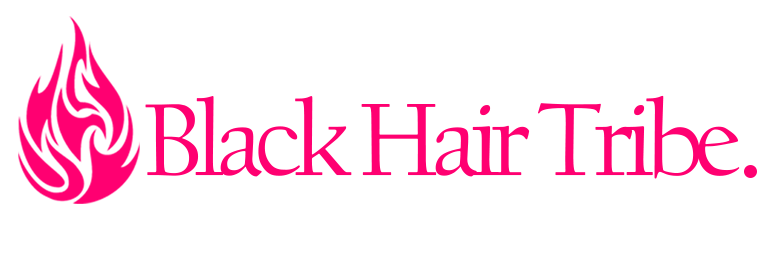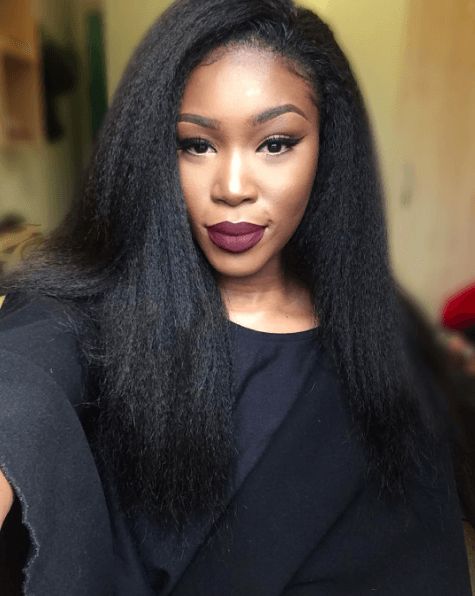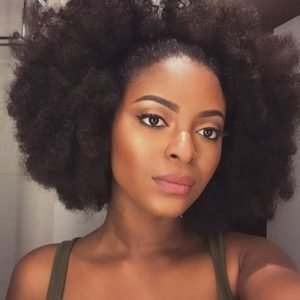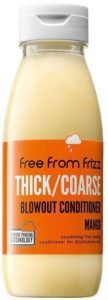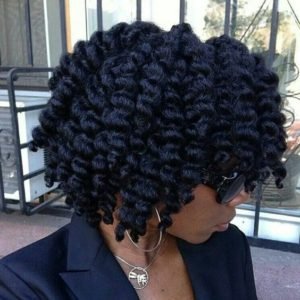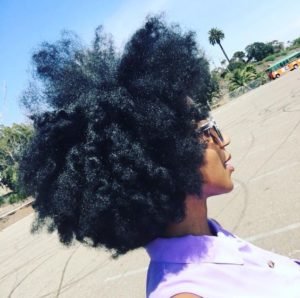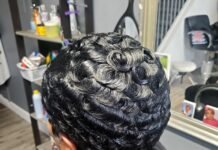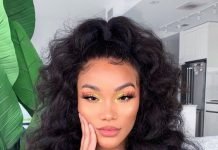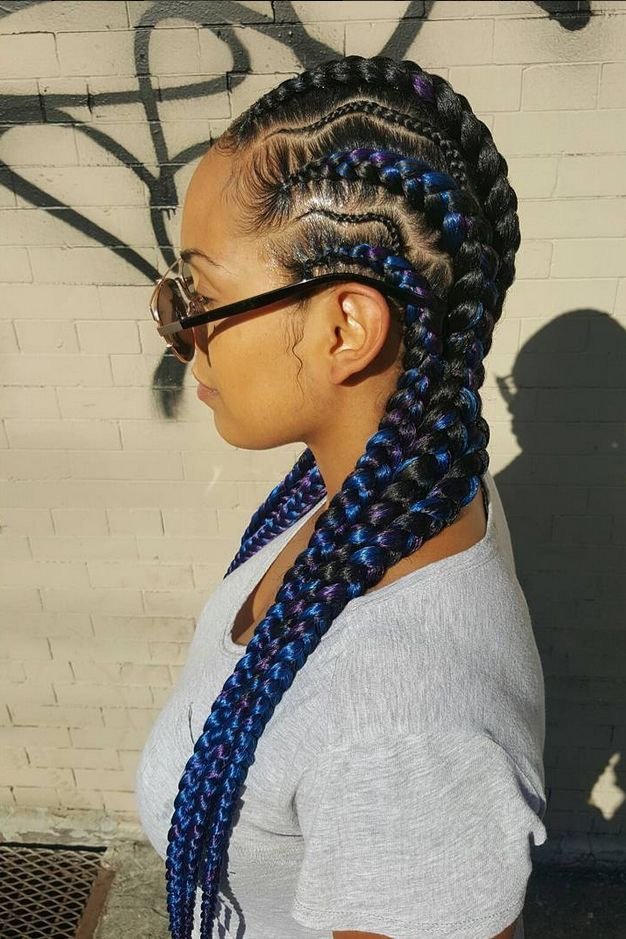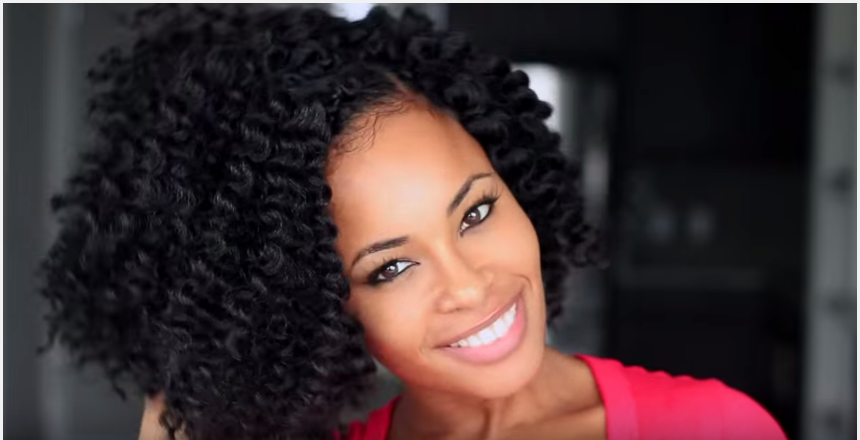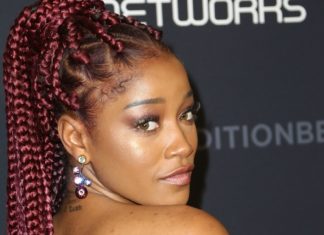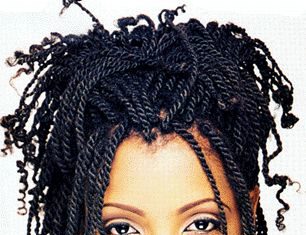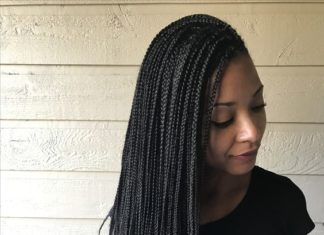Coarse Hair 101
There are many misconceptions about coarse hair. Often, the term coarse is used interchangeably with other terms such as thick, kinky, curly, and dry. But what does it really mean to have coarse hair? Different hair types have different needs, so knowing whether or not your hair is actually coarse is an important part of establishing a routine that’s best for your hair. Let’s take a look at coarse hair: what it is, the challenges and advantages that come with it, and how to take care of it.
1What Is Coarse Hair?
If you look up the definition of coarse hair online or ask a group of women, you’re likely to get many different answers. Coarse hair is a term that often has negative connotations and is commonly used to describe “difficult hair.” But the word coarse actually refers to the width of each strand. When it comes to strand width or thickness, your hair falls into one of three categories: fine, medium, or thick/coarse. Fine hair is very small in diameter. An individual strand of fine hair is thinner than a piece of thread, generally doesn’t hold styles that well, and is most susceptible to breakage. Medium strands are larger in diameter, holds styles well, and tend not to break as easily as fine strands. Coarse hair is strong and thick and holds styles very well. Individual hair strands are thicker than a piece of thread and may feel rough to the touch.
2Is Your Hair Coarse or Just Dry?
It’s not unusual to mistake dry hair for coarse hair because coarse hair can have a rough or wiry feel. But dry hair is not the same as coarse hair. Fine, medium, and coarse hair can all be dry or well-moisturized. Dry hair will normally break easily during handling and styling. Moisturized coarse hair will not break as easily as dry hair. Remember that coarse hair is all about strand thickness: coarse strands are thicker and more solid so they won’t feel as silky and light as fine hair. Deep conditioning and steam treatments will help moisturize and soften both dry and coarse hair, but it’s still important to know the difference.
3Coarse Hair vs Curly Hair
A common misconception is that all curly (or kinky) hair is coarse. In actuality, curl pattern has nothing to do with strand thickness. Curly strands can be fine, medium, or coarse. In fact, many people with curly hair actually have fine strands, so the assumption that curly hair is automatically coarse can actually be detrimental to the health of your hair. You (or your stylist) might be subjecting your hair to damage thinking that it can withstand more manipulation, heat styling, and rough handling than it actually can.
4Coarse Hair vs High-Density Hair
Density refers to how many individual strands you have on your head and how closely packed together they are. The term thick is often used to describe high-density hair because it has such a full appearance. But your hair’s density has nothing to do with how thick your individual hair strands are. You can have a whole lot of fine strands, or thick/coarse strands that are low density. The “ponytail test” will help you determine your hair’s density. A ponytail on low-density hair will have a circumference of fewer than two inches. The circumference of the ponytail will be about two or three inches on medium density hair, and even bigger on high-density hair.
5Other Factors To Consider
In addition to knowing the difference between curly hair vs coarse hair and high-density hair vs coarse hair, it’s important to be familiar with the other categories your hair falls into when it comes to hair type and porosity. There are four main hair types: straight, wavy, curly, and coily/kinky. There’s also a range of different curl patterns within each of these hair types (particularly wavy, curly, and coily/kinky hair) which vary depending on how loose or tight your curls are. Coarse hair is most often associated with kinky/curly hair, but many people have straight, coarse hair as well.
6Other Factors To Consider (Continued)
Porosity refers to your hair’s ability to absorb moisture. High porosity hair absorbs moisture very easily but allows moisture to leave your strands just as easily. Low porosity hair has tightly bound cuticles that make it more difficult for moisture to get in. Normal porosity hair easily absorbs and retains moisture. Density, porosity, strand thickness, and curl pattern will all affect the way your hair responds to certain products and styling techniques. This is why there is no one size fit all hair product or hair care routine.
7Coarse Hair Care
It’s common for coarse hair to be dry – especially if your hair is also naturally curly or kinky. The combination of your strands’ coarseness and all the bends and curves in curly hair prevent your scalp’s natural oils from traveling all the way down the hair shaft. Luckily there are ways to remedy the dryness you may experience. Using a sulfate-free shampoo is one way to combat dryness. A good, penetrating deep conditioner will also help infuse moisture into the hair. If possible, put on a shower cap and sit under a hooded dryer to help the conditioner really penetrate your strands.
8Moisturizing Coarse Hair
Because coarse hair is thicker, it can usually handle heavier moisturizers and butters without being weighed down. After deep conditioning, apply a thick, creamy leave-in conditioner or moisturizer to the hair and seal with an oil or butter (such as shea butter). Keep in mind that the products that work best for you will also depend on your hair’s porosity, density, and texture. Do some research and use trial and error to find the products that work best for your hair. Depending on how well your hair retains moisture, you may find that you need to moisturize every day or every other day. You might also find cleansing conditioners to be helpful, but if you use heavy products often, cowashing may not be enough to remove all the product build-up. In this case, sulfate-free shampoos will be your best bet.
9Products for Coarse Hair
Again, which products work best for you will depend on your hair’s unique characteristics, but here are some products that might work for you if you have coarse hair:
Carol’s Daughter Black Vanilla Hair Smoothie: As the name suggests, this deep conditioning treatment smells good enough to eat. It’s also the perfect treat for dry or coarse strands, leaving them soft and moisturized.
Cantu Shea Butter Leave-In Conditioning Repair Cream: This popular hair cream is made with a variety of moisturizing ingredients and works well on a variety of hair types and textures.
As I Am Double Butter Cream: This moisturizer and styler can easily weigh down fine strands and leave them feeling oily, but it’s an ideal product for dry and coarse strands.
Camille Rose Naturals Almond Jai Twisting Butter: This styling cream is super moisturizing and it’s perfect for styles like twist outs and braid outs, resulting in moisturized hair with great definition.
10Coarse Hair and Chemical Treatments
One of the characteristics of coarse hair that set it apart from fine and medium hair is that all three layers of the hair shaft are present: the cortex, the cuticle, and the medulla (fine and medium strands are usually only made up of the cortex and cuticle). This is what makes coarse hair so strong. If you have coarse hair, you may notice that it takes a long time to dry; this is especially true if you have low porosity hair. Coarse hair is also often resistant to chemical treatments such as hair dye and relaxers, resulting in under processed hair. You may need a stronger, darker hair dye or an extra strength relaxer to get the results you’re looking for.
11Styling Coarse Hair
When styling coarse hair, it’s important not to take advantage of the fact that it is stronger than medium or fine strands. It may be strong but it is not invincible. It’s still a good idea to handle with care and use a heat protectant when using hot tools such as blow dryers and flat irons. Better safe than sorry! Another benefit of coarse hair is that it tends to hold styles better than fine hair. This means that styles such as twist outs and rod sets tend to hold up better on coarse hair. Don’t forget to use moisturizing styling products to avoid dryness, which can lead to breakage.
12Summing It All Up
Hair care can be complicated, but the more you know about your own unique head of hair, the better you’ll be able to care for it. Some people think having coarse hair is a challenge, but like any other hair type, it just requires the right type of care. Coarse hair is strong and versatile and should never been seen as a negative trait. Just treat it with a little TLC and it will flourish.
